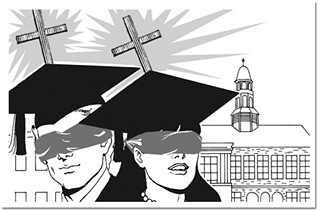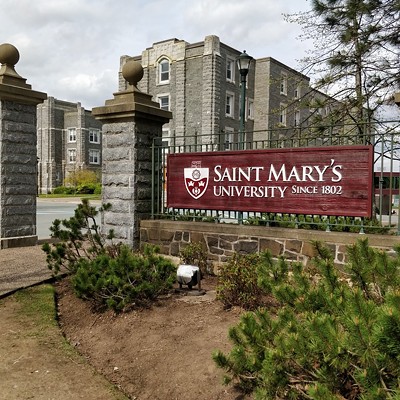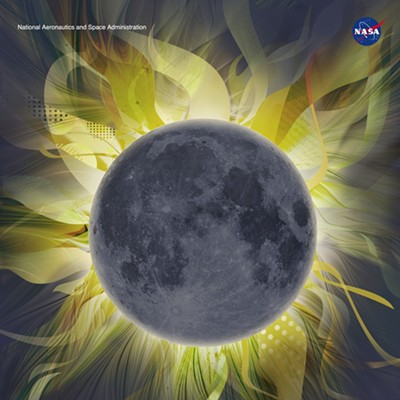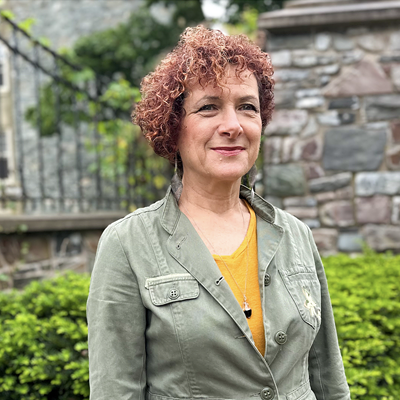Ultimate decision-making at Saint Mary’s University---including final say on university budgets, tuition rates and hiring---relies in part on the approval of the Catholic Church. It’s a state of affairs that doesn’t sit right with Mark Mercer, a professor of philosophy at the school. “This should be a secular institution,” he says.SMU was founded by Catholics and run by the Jesuit order until 1970. In that year, however, SMU became a publicly funded university and lost most of its formal ties to the church. But the University Act of 1970, which governs SMU, kept some historic associations: The Archdiocese of Halifax still appoints three voting members to the Board of Governors and the Jesuit order appoints a fourth.The Archbishop himself---the Catholic Church prohibits women from holding the position---served as Chancellor of the University until last year, when, citing time constraints and the increasingly public nature of the job, then-Archbishop Terrence Prendergast asked that his role be downsized. The Archbishop now acts as the “Visitor to the University,” which is a fifth Catholic-appointed board member, out of 33 total.There are a handful of other Catholic oddities at SMU---board meetings begin with a prayer, the Feast of the Immaculate Conception is a university holiday and a wooden magi display (with a pale-faced Balthasar, points out Mercer) appears on the lawn each Christmas season.More problematic, one of the four “objectives” of SMU as defined by the University Act is “to give special emphasis to the Christian tradition and values in higher education.”That legal clause has no practical effect on instruction, says Mercer. But potential students “might not apply because they think the university is Catholic. Or, and I think this is more likely, that might be why they apply, and then they’ll feel we’re letting them down.”Such concerns are misplaced, says Chuck Bridges, vice-president for external affairs at SMU. “Students are pretty thorough when they investigate potential universities.” Moreover, he says, SMU has broad cultural representation, with “a significant” number of students from the Caribbean, the Gulf states, China and elsewhere.Marilyn Sweet, spokesperson for the Catholic Archdiocese of Halifax, defends the church’s ties to SMU. “You don’t think we should be concerned about higher education?” she asks, rhetorically. When I suggest there is a difference between using moral suasion in the community and actually voting on budgets and appointments, she points out that all board appointments have potential biases. “Who else would you like on there? Would you want everyone serving to come from a particular viewpoint?”Other local universities have similar religious ties. Five board members at Mount Saint Vincent University are appointed by the (Catholic) Sisters of Charity. Six board members at University of King’s College are appointed by the Anglican Church. At Dalhousie University, a single seat allocated to the United Church of Canada has sat vacant for at least ten years, by mutual assent.“When I came here four years ago I was a little bit surprised to see ,” says Bill Barker, president of King’s. “But this is a place with pretty strong ties to its history. It’s a pretty conservative place.”The Anglican presence at King’s “amounts to chapel on Wednesday, Thursday and Sunday,” says Barker. Additionally, there have been “small issues,” including a recent complaint about board meetings opening with a prayer. That was resolved to everyone’s satisfaction when the optional prayer and the meeting were separated by a break, he says. “But looking at our student body, there are a lot of different religious backgrounds. They don’t declare it. It’s a quite secular school.”Barker himself is “a confirmed Anglican, but totally non-practising. But it never came up when I was hired. The historic religious ties are part of the life and energy of this place. I try to be supportive.”Mercer recently wrote about the issue for two issues of the SMU student paper, The Journal, and raises it as part of classroom discussion. “But no one else seems very bothered by it,” he says.
Sunday school
Why are local public universities still partially managed by church-appointed governors?
[
{
"name": "Air - Inline Content - Upper",
"component": "26908817",
"insertPoint": "1/4",
"requiredCountToDisplay": "8"
},{
"name": "Air - Inline Content - Middle",
"component": "26908818",
"insertPoint": "1/2",
"requiredCountToDisplay": "8"
},{
"name": "Air - Inline Content - Lower",
"component": "26908819",
"insertPoint": "100",
"requiredCountToDisplay": "1"
}
]












